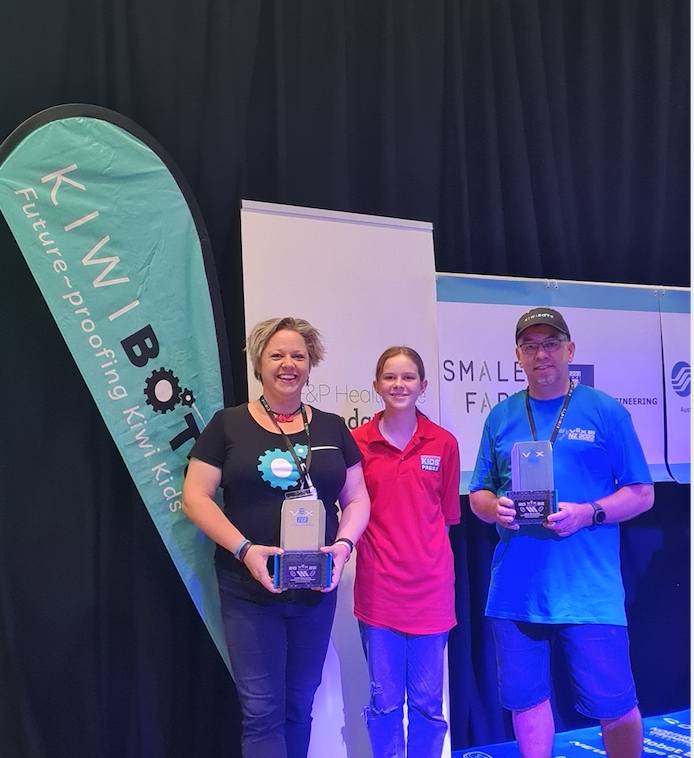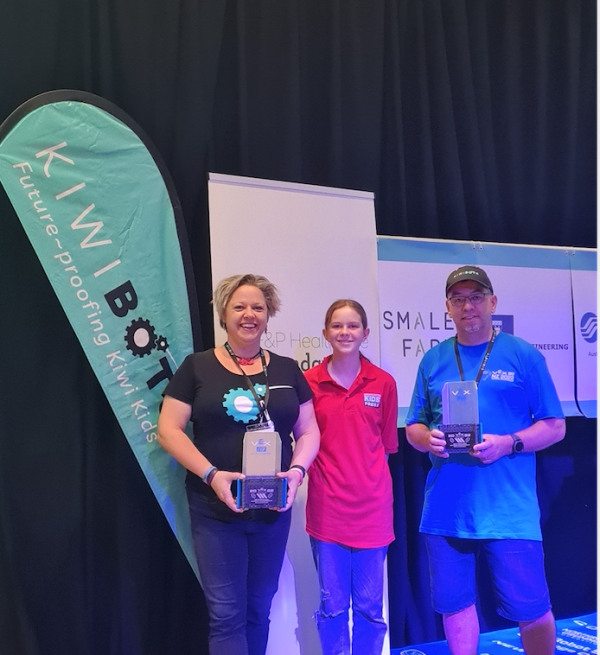KID REPORTERS’ NOTEBOOK
A Robotics Competition Thrills Students


Grace with Michelle Hazeleger-Mollard and Stephan van Haren of Kiwibots, a nonprofit organization that hosts robotics competitions for students in New Zealand
Last December, I competed in the Vex IQ National Championships in Wellington, New Zealand. The thrilling competition tests students’ robot-building skills and encourages young people to pursue careers in STEM (science, technology, engineering, and math).
“The designs of the robots just blow my mind,” said Michelle Hazeleger-Mollard, national operations manager of Kiwibots. “I love the enthusiasm of the kids.”
Kiwibots, a nonprofit organization, sponsors annual robotics competitions in New Zealand. The group hopes to inspire the next generation of scientists and creative thinkers.
“NEVER GIVE UP”
Vex IQ, which is based in Texas, produces robot-building materials that schools and clubs around the world purchase. The seemingly meaningless plastic pieces that come with the kits can be used to build the most unusual and amazing robots.
“It’s very challenging as things are always breaking,” said Ashton Thrupp, 11, who placed third in the New Zealand competition. “My advice for people wanting to try Vex IQ is to never give up. Things are always going to go wrong, but you can’t give in.”
The suspenseful competition captivated viewers and participants alike with its difficult engineering challenges and breathtaking match games.
STUDENTS TEST SKILLS
Vex IQ gives students in elementary and middle schools worldwide an opportunity to think like scientists, build like engineers, and compete like athletes. New “games” are released each year. Competitors get six months to plan, create, and compete, hoping to make it all the way to the national competition.
Competitors participate in four sections: double team games (two teams compete side by side), driver skills (a driver competes alone), coding, engineering notebooks (competitors catalogue their observations about the engineering process), and interviews (judges interview students about their teams and robots).
More than 170 students participated in the 2022 competiton in New Zealand. Winners now have a chance to compete on the international level.
“Kids learn to take disappointments, successes, and failures," said Stephan van Haren, a teacher representative for Kiwibots. “It’s an incredible learning experience. I wish there had been something like this when I was younger.”
